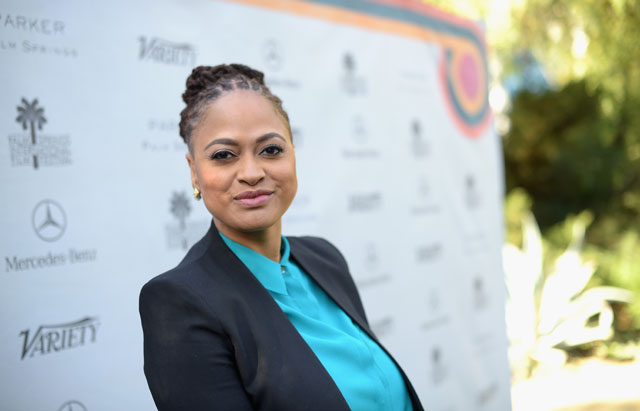More than most other black filmmakers in Hollywood today, Ava DuVernay elicits a certain giddiness in black moviegoers. Her path to stardom as the director of the Oscar-nominated Martin Luther King Jr. biopic "Selma" is certainly a draw. Before stepping behind the camera, DuVernay spent 12 years as a publicist who specialized in building audiences of color for Hollywood films. As she once recounted to the Boston Globe, she used to "plan junkets and actually be on my hands and knees rolling the red carpet." She’s a consummate underdog–a black woman in a male-dominated and stubbornly white industry who’s worked her way into the foreground by unapologetically telling nuanced black stories. But an equally indelible part of her story is the film distribution network she founded in 2011 to help connect black audiences with black films. The African-American Film Festival Releasing Movement (AFFRM) is, she told the New York Times that year, more of a "call to action" than a business. The plan is to put films by black directors and majority black casts into commercial theaters by first drumming up support for them on the festival circuit.
Those festivals include New York City’s Urbanworld Film Festival, the ReelBlack Film Series in Philadelphia, Los Angeles’ Pan African Film Festival and the BronzeLens Film Festival in Atlanta. AFFRM has released nine films in total, including two of DuVernay’s own ("I Will Follow" and "Middle of Nowhere"). Other films include "25 to Life," a documentary about an HIV-positive black man who decides after 25 years to reveal his status to his family, and "Vanishing Pearls," which looks at the effects of the 2010 Deepwater Horizon oil spill along the Gulf Coast. DuVernay knows the industry well enough to know that these films, which touch on the very essence of racial inequality in the United States, won’t attract huge audiences. Nonetheless, they’re important stories that need to be told.
"I don’t think AFFRM’s had any impact on the industry," DuVernay told Colorlines in December. "Big Hollywood doesn’t even care about Sundance. They care about big audiences and they care about big money, and AFFRM is not about money, it’s about the preservation, protection and projection of the black cinematic image."
Co-creators call her vision uncommon. Cinematographer Bradford Young, who worked with DuVernay on "My Mic Sounds Nice," "Middle of Nowhere" and "Selma," says he was initially taken in by her independent spirit. "It’s rare to come across filmmakers period who are about creating their own institutions," Young told Colorlines. "On top of it, it’s even more rare to find filmmakers of color who are committed to telling black stories. She has the ability to take radical, independent, fiercely black examples [and] use them to energize herself as an artist. But also it’s a way to shore herself as she operates, shore herself from difficult surroundings in Hollywood."
Perhaps DuVernay’s most important contribution is the community that she’s built among likeminded black filmmakers. In 2013, the same year she signed onto do direct "Selma," AFFRM also launched a podcast called "The Call-In."In the first episode with Andrew Dosumnu, who directed the critically acclaimed film "Mother of George," she talks about the nuances of shooting "beautiful black skin." It’s a subtle sort of observation but one that’s uniquely important to black filmmakers and audiences. "It’s blue-black, it’s skin on skin, it’s awesome," she says about the cinematography in Dosumnu’s film.
Clearly DuVernay’s passion isn’t about profits. "At no point are we under any illusions that we’re making a dent in anybody’s pocket anywhere or making any kind of ripple effect in that Big Hollywood system," she says of AFFRM. "But what we do, I hope, is make a difference to the filmmakers who are trying to decide whether or not to make a film because they don’t know if where it will land. Maybe AFFRM will give them that amplification that’s eluded so many black filmmakers for so many decades."
